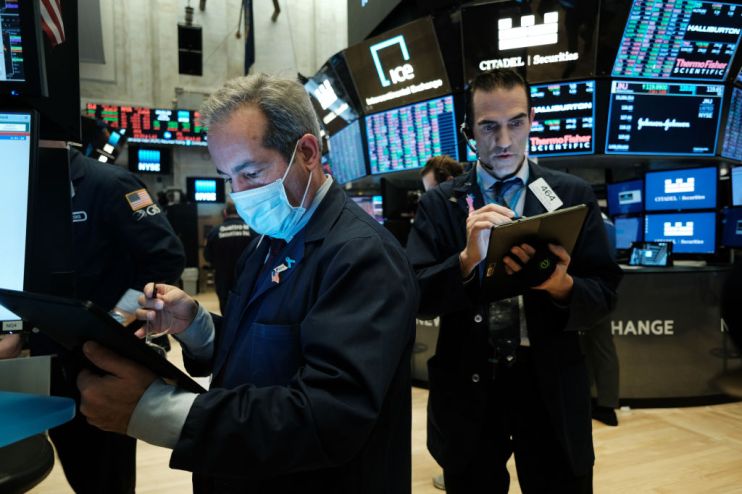Sterling slips against euro and dollar amid worries over UK spending plan

Sterling fell against the euro and dollar on Monday amid concerns from investors over how the British government will finance its planned infrastructure programme, with Brexit-related risks helping to keep pressure on the pound.
Prime Minister Boris Johnson said this morning that he would ramp up government spending in a bid to mitigate the economic damage caused by the coronavirus crisis, telling Times Radio that a return to austerity would be a mistake.
Home secretary Priti Patel said the government would tomorrow unveil a plan to boost spending on infrastructure.
Sterling fell 0.7 per cent to 91.60p against the euro following news of the spending pledges, trading below the levels reached on Friday, when the pound hit its lowest level against the euro since March.
The pound also slipped 0.18 per cent against the dollar to $1.2313, its lowest level since late May.
Before the Open newsletter: Start your day with the City View podcast and key market data
“The pound earlier today, certainly in Asian hours, looked as it had a little bit of a boost on the back of the perception that we will have potentially strong growth on the back of that (infrastructure spending), but I think that back in European hours, the market is now a little bit more concerned about funding,” said Jane Foley, head of forex strategy at Rabobank.
Brexit-related concerns also continued to keep up pressure on sterling, with doubts over whether Britain will strike a trade deal with the European Union weighing on the currency with little signs of progress being made on the pair’s future relationship.
Johnson signalled over the weekend that Britain would be ready to quit its transitional arrangements with the EU “on Australia terms” if no deal is reached.
Australia has no comprehensive trade deal with the EU. Much of EU-Australia trade follows default World Trade Organisation (WTO) rules though specific agreements are in place for certain goods.
“There’s a lot of skepticism as to whether or not the Johnson government will compromise with the EU, or whether or not it will walk away and just leave trade [to] fall back on WTO terms from January next year,” Foley added.